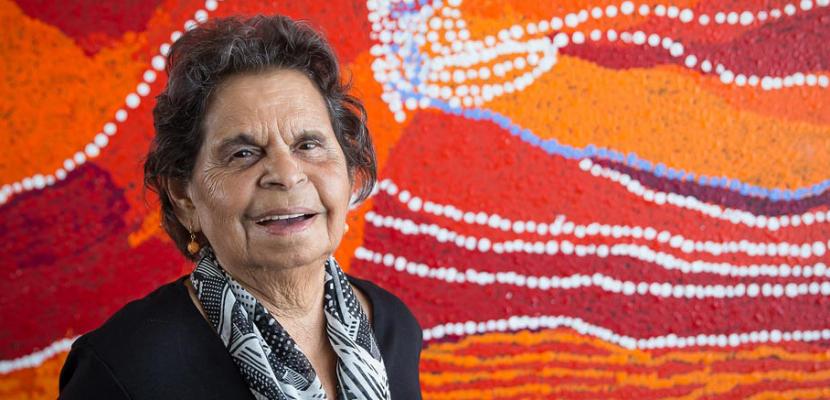
Gold Coast Indigenous leader Aunty Joyce Summers has been honoured for her commitment to community and education, being recognised as a Bond University Fellow.
Aunty Joyce was awarded the honorary title in recognition of her significant contribution, particularly in the development of Bond's Nyombil Indigenous Support Centre.
Bond University Vice-Chancellor and President, Professor Tim Brailsford, said Aunty Joyce had been instrumental in the support and growth of the centre, including mentoring Bond's Indigenous students.
"Aunty Joyce has helped establish many committees and Aboriginal and Torres Strait Islander organisations on the Gold Coast and is an advocate for the healing of relationships between Indigenous peoples and others through understanding and tolerance," he said.
"She is committed to the advancement of Indigenous people and places a high value on the importance of education.
"Aunty Joyce has been very much part of the Bond University landscape for many years. She has always made herself available to the University, and indeed myself, to give spiritual advice and guidance on the ways and culture of Indigenous people."
Born on Ukerabah Island, an Aboriginal Reserve on the Tweed River, Aunty Joyce was involved in the fight to save the island from development, alongside her brother Cedric Morgan, Senator Neville Bonner - Australia's first Indigenous Member of Parliament - and other members of the community.
Her impressive resume includes chairing Gold Coast City's National Aboriginal and Islanders' Day Observance Committee (NAIDOC) in 2015 and a Premier's award in recognition of her extensive community work.
Demonstrating her passion for education, she completed a degree in Indigenous Studies at the age of 68.
Aunty Joyce said she looked forward to continuing to work with Bond University and its growing Indigenous student cohort.
"I think it is wonderful that Bond has so many Indigenous students studying here, and such a high retention rate of these students," she said.
"I'm a humble person. You do things out of the goodness of your heart and don't expect accolades, but I feel truly honoured to be recognised as a Fellow of Bond University."
Bond University Pro Vice Chancellor of Students and Academic Support, Alan Finch, said Aunty Joyce was a powerful role model for young students and continued to work with the university on maintaining a strong link to the regional Indigenous network.
"Aunty Joyce has played a pivotal role in Bond University's relationship with the Indigenous community and continues to be a spokesperson for Indigenous people, helping local groups to tackle social issues including health and education," said Mr Finch.
More than 70 Indigenous students are currently enrolled at Bond University across a range of programs, including undergraduate courses and postgraduate research projects.
Bond University law and arts student Bethany Allen, who met Aunty Joyce in her first semester, said Aunty Joyce made her feel welcome as a new member of the Bond community.
"When you leave your culture and community and come to somewhere new, you feel like a foreigner until you are welcomed - and Aunty Joyce made us feel at home," she said.